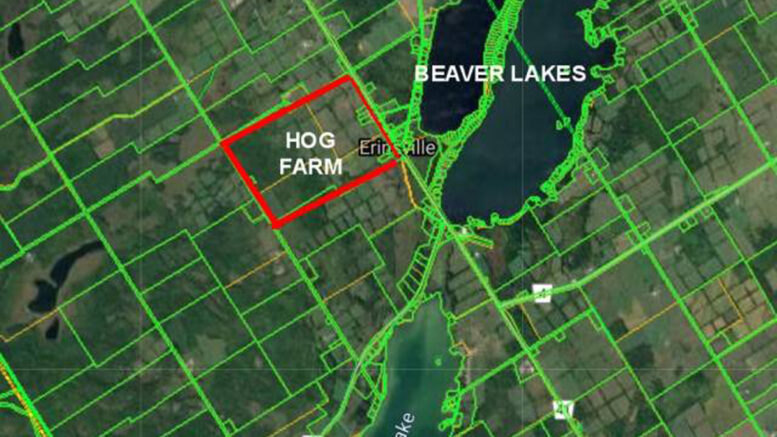Beaver Staff
Erinsville residents opposed to the location of a hog farm within the hamlet say they have an expert who has recommended the project be halted.
Wilf Ruland, expert hydrogeologist and specialist in water resource and contamination issues, has reviewed the available documentation for the proposed hog farm on Waddell Road, not far from Beaver Lake. The group opposing its construction, known as the Concerned Citizens for Our Community Environments (CCCE) hired Ruland to review the data they have on the site. The CCCE says in Ruland’s professional opinion, due to the location and characteristics of the site, it is not reasonable to proceed with the proposed hog operation.
On June 18, Stone Mills Township issued a building permit on that location to Mark Slack of Slack Family Farms Inc. Due to their concerns about community health and safety and protection of the waterways, the CCCE had previously asked Stone Mills Council to grant a 60-day delay in the project in order to review and comment on the proposal. This request was denied. At the meeting Stone Mills staff told council they had reviewed the property and saw no reason to deny the application. Quinte Conservation also investigated claims by the CCCE about a water way they say leads from the middle of the property, next to a proposed manure storage unit, to Beaver Lake. Quinte Conservation said they saw no sign of the body of water, CCCE maintains it isn’t present in dry weather but continues to flow underground.
Based on the risks of contamination itemized in Ruland’s report, the CCCE is now asking Stone Mills to stop the project until the proponent completes a proper impact assessment and it has been reviewed with the public. Stone Mills council will next meet July 13.
“Based on the findings of my review of the available hydrogeological information and evidence, it is my professional opinion that it is not reasonable to proceed with the proposed intensive hog operation,” Ruland’s report reads. “The available evidence suggests that the existing livestock operation on the subject property already poses a threat to local groundwater supplies and domestic wells, and it is apparent that the proposed intensive hog operation will exacerbate that threat.”

